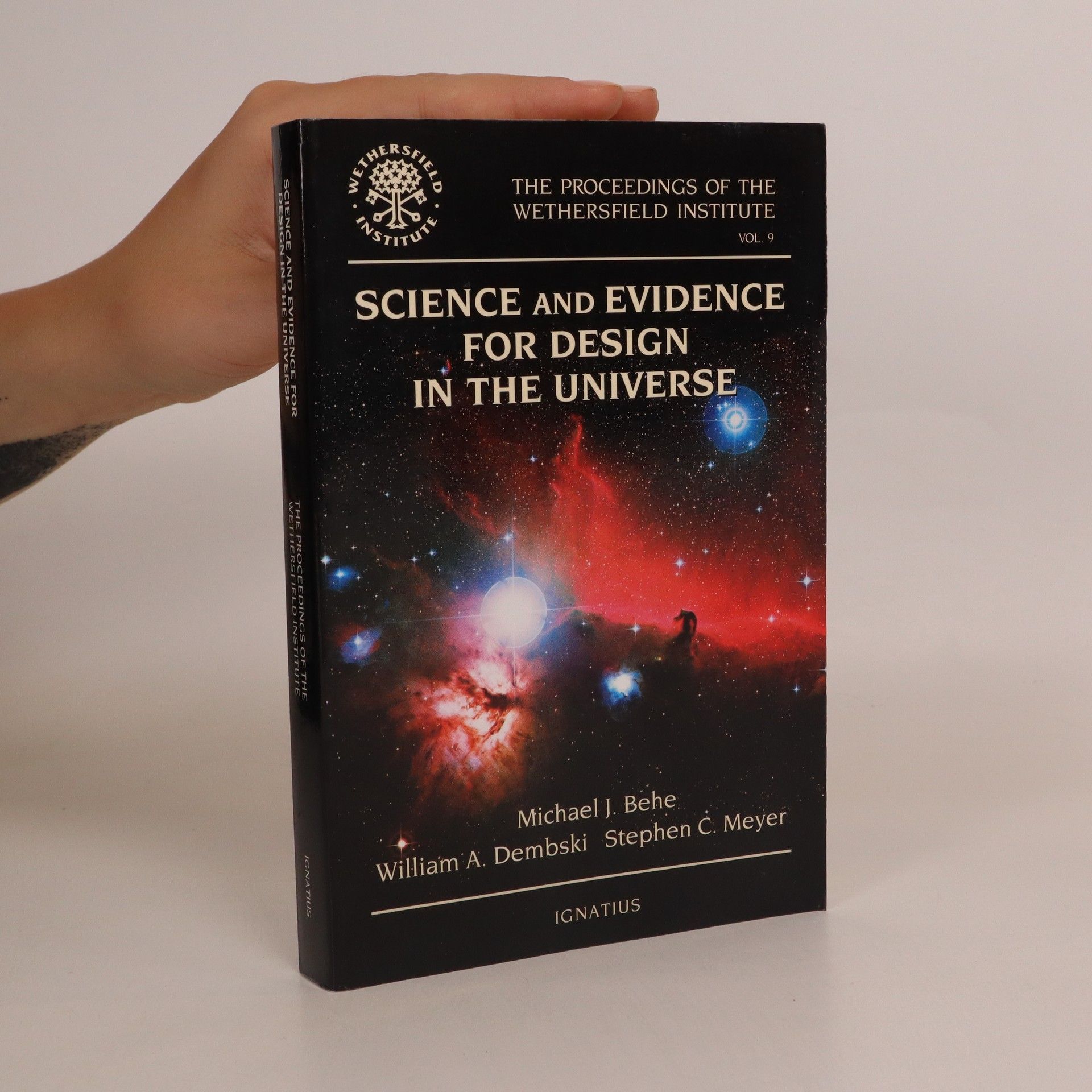The New York Times bestselling author of Darwin’s Doubt, Stephen Meyer, presents groundbreaking scientific evidence of the existence of God, based on breakthroughs in physics, cosmology, and biology. Beginning in the late 19th century, many intellectuals began to insist that scientific knowledge conflicts with traditional theistic belief—that science and belief in God are “at war.” Philosopher of science Stephen Meyer challenges this view by examining three scientific discoveries with decidedly theistic implications. Building on the case for the intelligent design of life that he developed in Signature in the Cell and Darwin’s Doubt, Meyer demonstrates how discoveries in cosmology and physics coupled with those in biology help to establish the identity of the designing intelligence behind life and the universe. Meyer argues that theism—with its affirmation of a transcendent, intelligent and active creator—best explains the evidence we have concerning biological and cosmological origins. Previously Meyer refrained from attempting to answer questions about “who” might have designed life. Now he provides an evidence-based answer to perhaps the ultimate mystery of the universe. In so doing, he reveals a stunning the data support not just the existence of an intelligent designer of some kind—but the existence of a personal God.
Stephen C. Meyer Livres
Cet auteur est reconnu pour son exploration à l'intersection de la science et de la philosophie. Son travail aborde des questions profondes concernant les origines de la vie et de l'univers, en mettant souvent l'accent sur les arguments scientifiques et les implications philosophiques. Il s'efforce de relier la compréhension scientifique contemporaine à des significations plus profondes de l'existence. Son approche est analytique et suscite la réflexion.





Signature in the Cell
- 288pages
- 11 heures de lecture
A Compelling Case for Intelligent Design Based on Revolutionary Discoveries in Science In Signature in the Cell, Stephen Meyer has written the first comprehensive DNA-based argument for intelligent design. As he tells the story of successive attempts to unravel a mystery that Charles Darwin did not address—how did life begin?—Meyer develops the case for this often-misunderstood theory using the same scientific method that Darwin himself pioneered. Offering a fresh perspective on one of the enduring mysteries of modern biology, Meyer convincingly reveals that the argument for intelligent design is not based on ignorance or "giving up on science," but instead on compelling, and mounting, scientific evidence.
Darwin's Doubt
- 560pages
- 20 heures de lecture
When Charles Darwin finished The Origin of Species, he thought that he had explained every clue, but one. Though his theory could explain many facts, Darwin knew that there was a significant event in the history of life that his theory did not explain. During this event, the “Cambrian explosion,” many animals suddenly appeared in the fossil record without apparent ancestors in earlier layers of rock. In Darwin’s Doubt, Stephen C. Meyer tells the story of the mystery surrounding this explosion of animal life—a mystery that has intensified, not only because the expected ancestors of these animals have not been found, but because scientists have learned more about what it takes to construct an animal. During the last half century, biologists have come to appreciate the central importance of biological information—stored in DNA and elsewhere in cells—to building animal forms. Expanding on the compelling case he presented in his last book, Signature in the Cell, Meyer argues that the origin of this information, as well as other mysterious features of the Cambrian event, are best explained by intelligent design, rather than purely undirected evolutionary processes.
Science and Evidence for Design in the Universe
- 180pages
- 7 heures de lecture
As progress in science continues to reveal unimagined complexities, three scientists revisit the difficult and compelling question of the origin of our universe. As mathematician, biochemist, and philosopher of science, they explore the possibility of developing a reliable method for detecting an intelligent cause and evidence for design at the origin of life. In the process, they present a strong case for opening and pursuing a fruitful exchange between science and theology. Mathematician William Dembski, author of The Design Inference , first argues that new developments in the information sciences make intelligent design objectively and scientifically detectable―he identifies the signs of design. Next, philosopher of science, Stephen Meyer, and biochemist Michael Behe, author of Darwin's Black Box , argue that these signs are now clearly evident in both the architecture of the universe and the features of living systems. Other essays by the authors defend the scientific status of the theory of intelligent design and show how that theory supports traditional religious belief without necessarily "proving" the existence of God. In a concluding essay, Michael Behe responds to critics of his best selling book, Darwin's Black Box , thus bringing readers up-to-date on the status of the contemporary design argument in biology.
Signature of Controversy: Responses to Critics of Signature in the Cell
- 143pages
- 6 heures de lecture
The book offers a critical analysis of the responses to Stephen C. Meyer's influential work on intelligent design, "Signature in the Cell." It highlights how many critics failed to engage with the core arguments of Meyer's theory. Edited by David Klinghoffer, it features essays from prominent defenders of intelligent design, including David Berlinski and Paul Nelson, who examine the critiques using the critics' own writings. This collection aims to clarify and defend the principles of intelligent design against its detractors.